Science
The Primary Science Curriculum
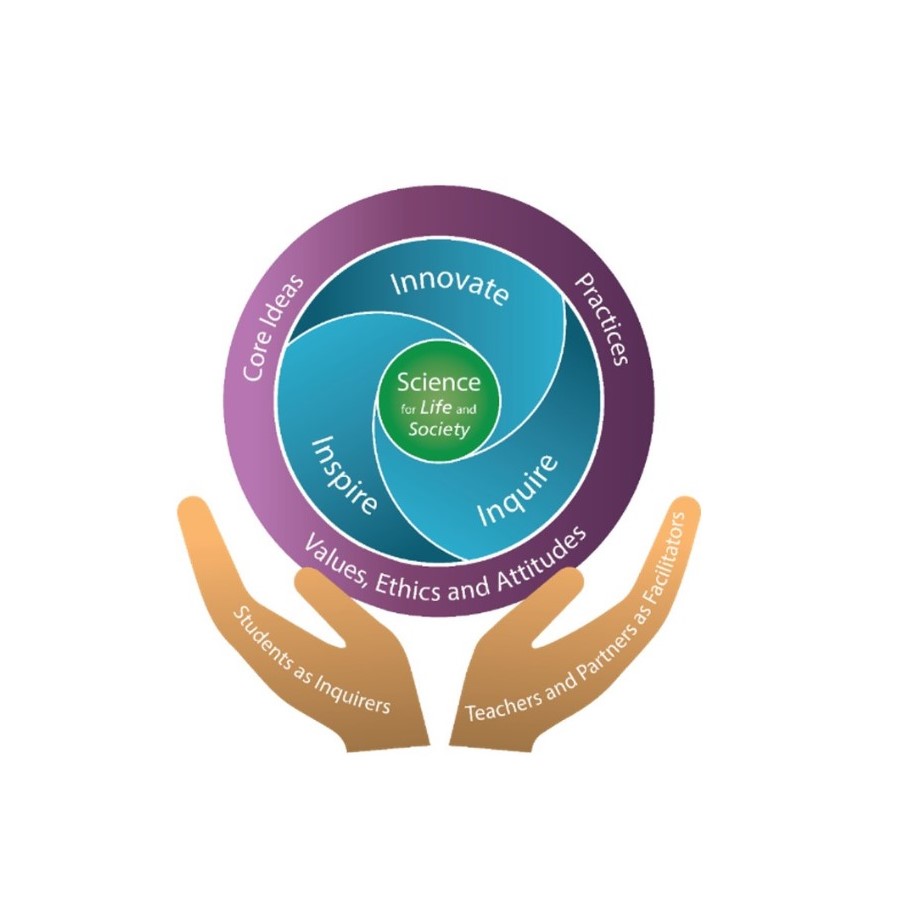
Objectives of the Primary Science Curriculum
-
build on their interest and stimulate their curiosity about themselves and their environment
-
acquire basic scientific concepts to help them understand themselves and the world around them
-
develop skills, dispositions and attitudes for scientific inquiry
-
apply scientific concepts and skills in making responsible decisions
-
appreciate how science influences people and the environment
Overview of the Science Curriculum
The Science department aims to realize the objectives of the Primary Science Curriculum by ensuring that Teaching and Learning involves the learning of Science content and concepts as well as acquiring process skills, scientific inquiry and reasoning.
Throughout the curriculum, students develop analytical and thinking skills through the use of the science journaling, investigative practical activities, learning journeys and the Applied Learning Programme.
Students are supported and developed in the learning of science process skills such as observing, predicting and analyzing through scientific inquiry.
3C Teaching and Learning Approach
Science teachers adopt the 3C approach, namely Capture, Construct and Consolidate as the fundamental strategies in their approach to teaching and learning.
Capture ideas and interest
Construct understanding of the scientific concepts
Consolidate learning through exit cards, topical reviews and assessments.
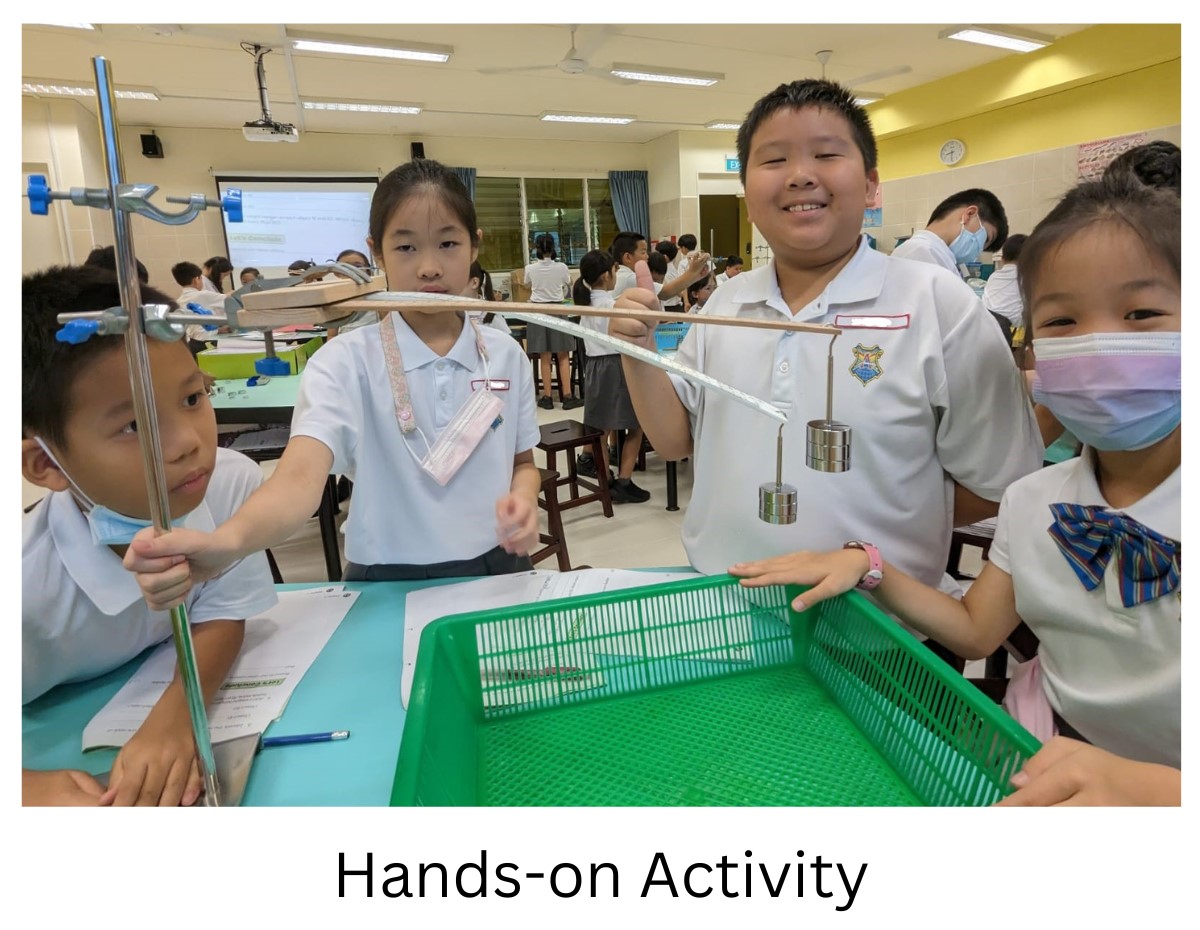
(A) Teaching and Learning Programmes
A-1 Experiential Learning
Science learning in ALPS centres on inquiry and discovery. With this core principle, science learning can take the form experiments or out of classroom experiences to peg the interest of the students.
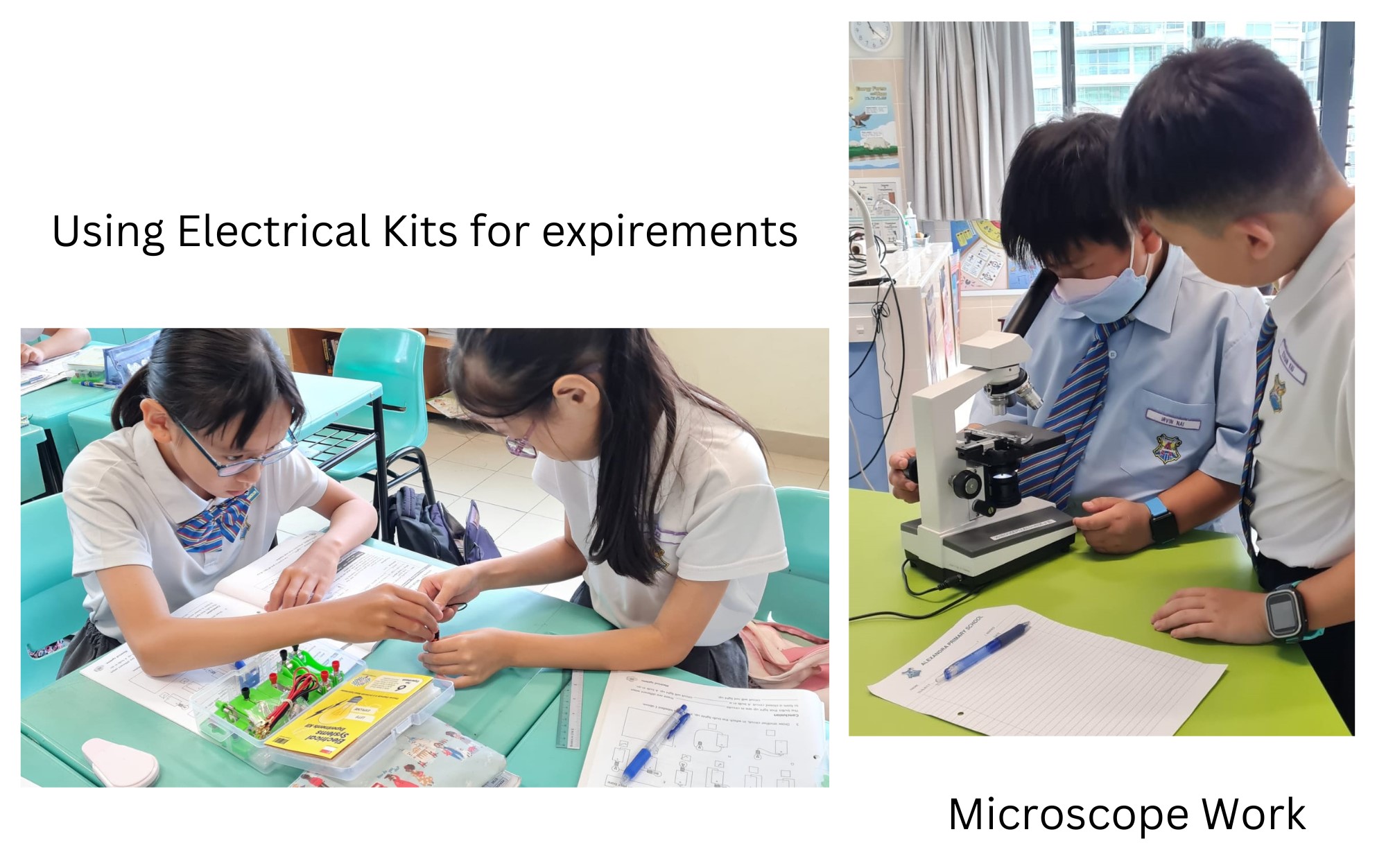
A-2 Use of ICT in the Learning Science
The use of ICT is promoted through the use of Dataloggers, Nearpod, Padlet and Augmented Reality through iPads or Laptops. For example, P5 students learn about the Respiratory System.
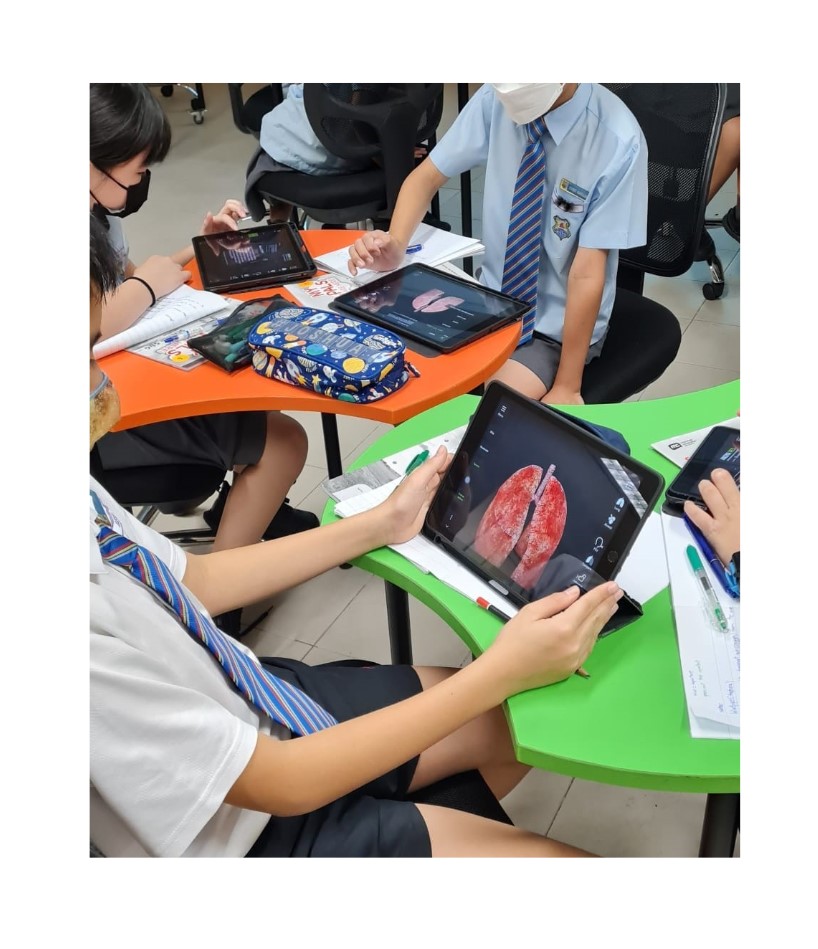
**A-4 Science Journal **
Objectives of the Science Journal
-
build on their prior knowledge, readings or classroom experiences to relate to their Science investigation
-
develop conceptual knowledge
-
become more aware of their own learning and what they can do to self- direct it
The Science Journal introduces a scientist that each student will learn in each level. For P3, Jane Goodall, an accomplished conservationist is adopted while Archimedes is the scientist of choice in P4 as the first topic is on properties of matter. Teachers prepare specific materials to be included in the journal such as science drawing of leaves or a 3D flower model. Exit cards, notes and mini-activities are also included in the science journal.
A-5 Science Enrichment Programme
ALPS offers the GEP E2K enrichment programme to selected students from P4 to P6. Due to the nature of the programme, class size is pegged at a maximum of 25 students. On average, the programme for each level lasted for 12 sessions which provide sufficient time for 2 to 3 E2K activities. Students are exposed to critical thinking and analysis in scientific experimentation through different scenarios to arrive at scientific theories and principles. For P6 students, they carry out experiments to determine the best possible characteristics of a vehicle that they designed.
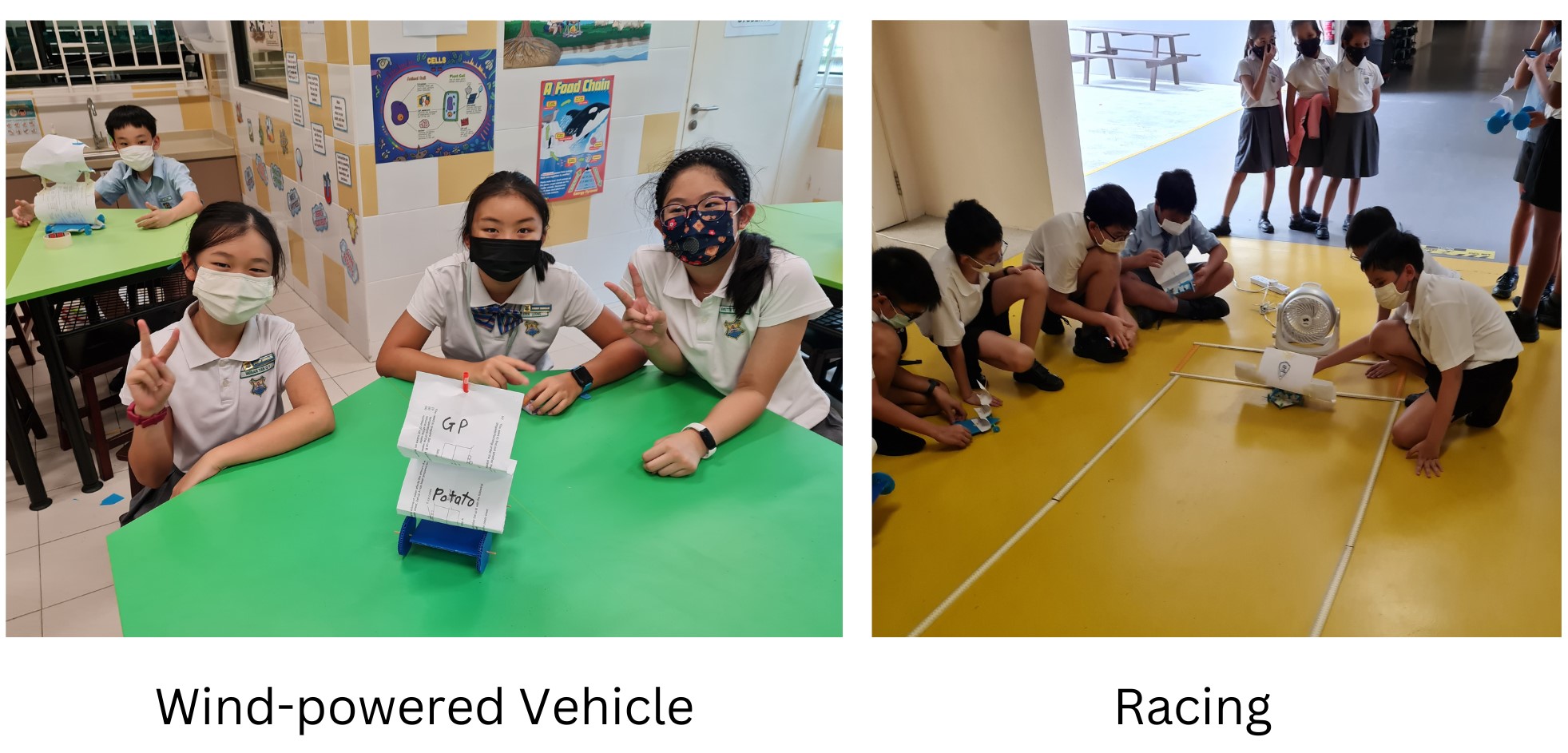
(B) Environmental Education
In Alexandra Primary School, we want to develop learners who think critically and inventively to solve environmental issues while showing care for the environment.
Our ALPS Environmental Education Programme allows our students to:
1. Learn environmental
issues to model the way
2. Think of ways to save the
environment and overcome challenges
3. Do the actions that
will save the environment to be a good role model
4. Share with others to
encourage and enable others to care and protect the environment
To do so, we have programmes such as the (A) ALPS P1-P2 Green Challenge, (B) Commemoration of environmental events like World Water Day and Earth Day, and (C) Everyday Responsibilities such as recycling and clean plate routine to provide students opportunities to learn environmental knowledge experientially.
B-1 ALPS P1-P2 Green Challenge
This annual event is formulated on the principle that an ALPS student can be a:
-
Creative Green Planeteer by Reusing
-
Inventive Green Planeteer by Repurposing
-
Responsible Green Planeteer by Reusing
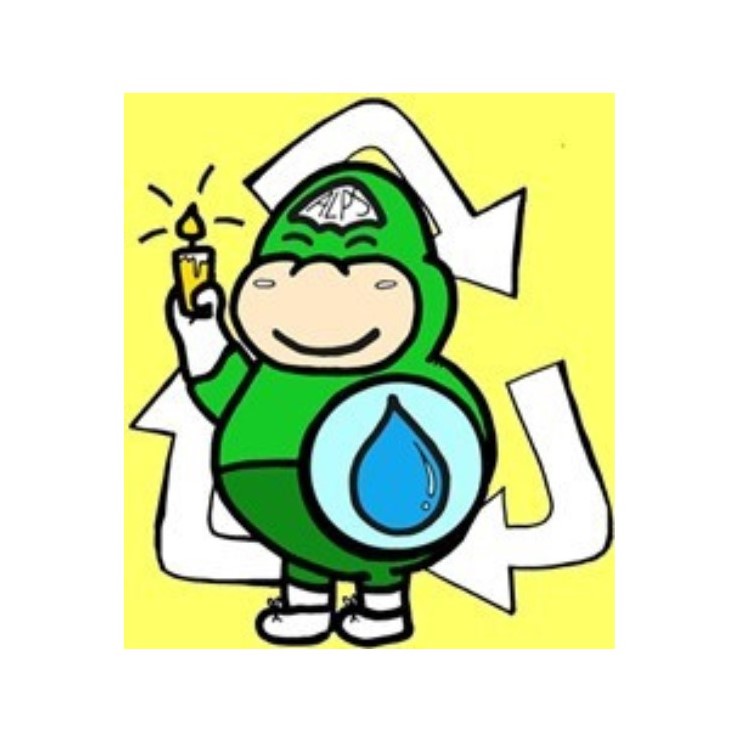
As part of our Environmental Education, we have planned tasks for students to design and create useful objects by Reusing and Repurposing paper products. Primary 1 students are tasked to repurpose the cores of toilet roll or kitchen roll. Primary 2 students are tasked to repurpose other paper products. In this way, P1 and P2 students are introduced at a young age to the concepts of reusing and repurposing as a starting point of their environmental education.
The students’ submissions are evaluated using the following criteria:

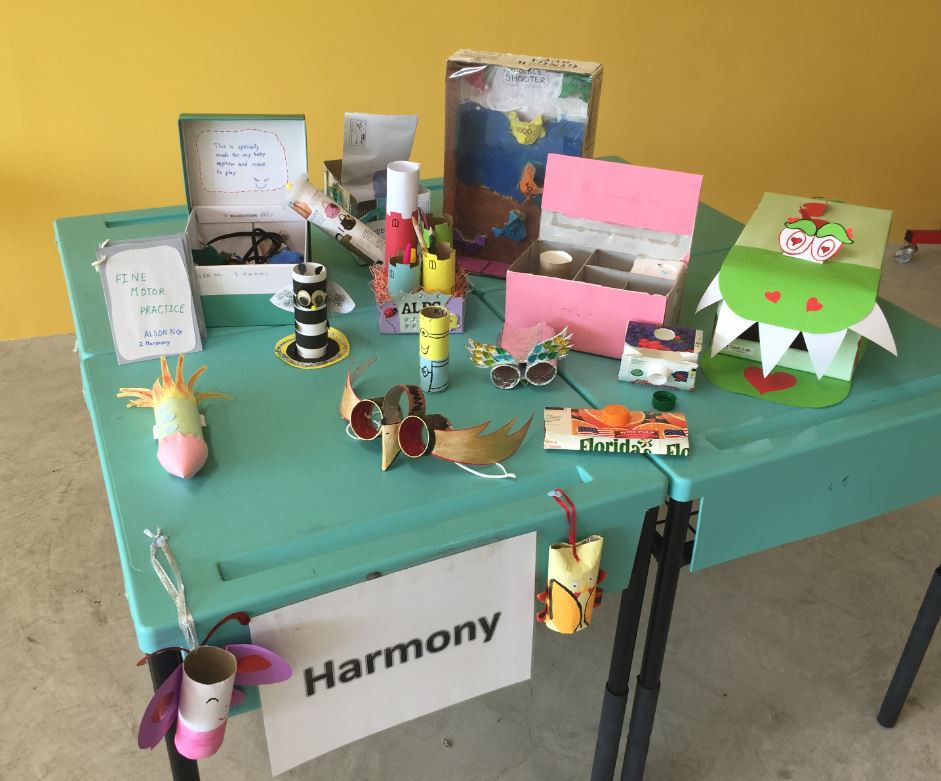
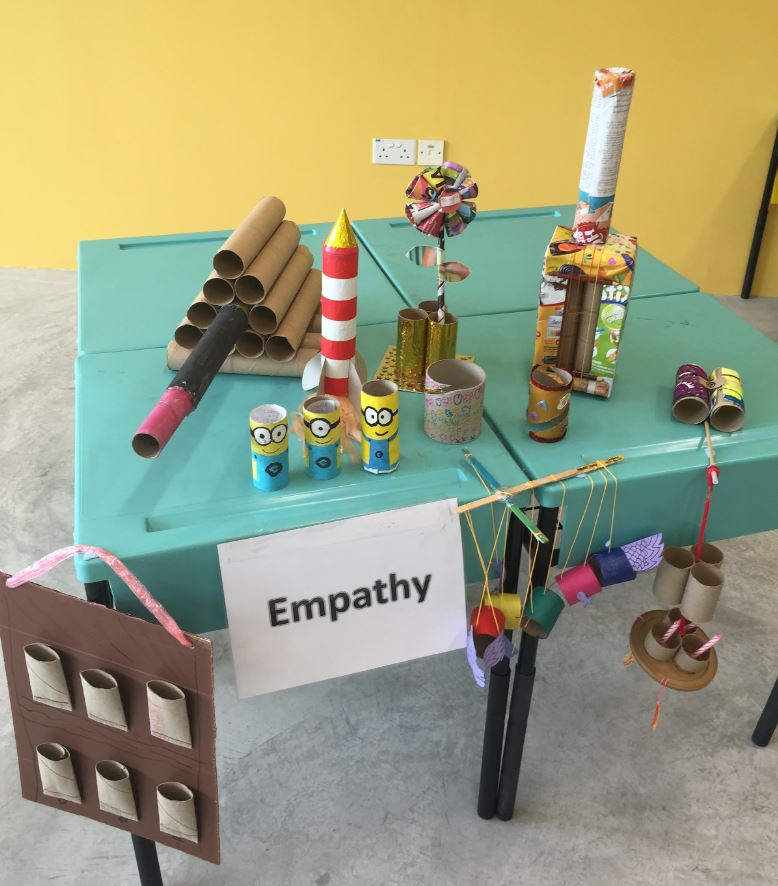
B-2 Commemoration of Environment Events
In order to raise the awareness of our students to environmental issues, the department plans for certain events to be commemorated in ALPS. Not only will participation in the planned activities help to develop a sense of regard for the environment, it helps to highlight their commitment to be responsible global citizens with a stake in conserving the environment.
World Water Day
Yearly, our school celebrates World Water Day by conducting assembly talks and carrying out Water Wednesdays’ activities such as the screening of water-saving videos on every Wednesday of the month. Primary 3 students take part in water-rationing activities to learn about the importance of conserving water.
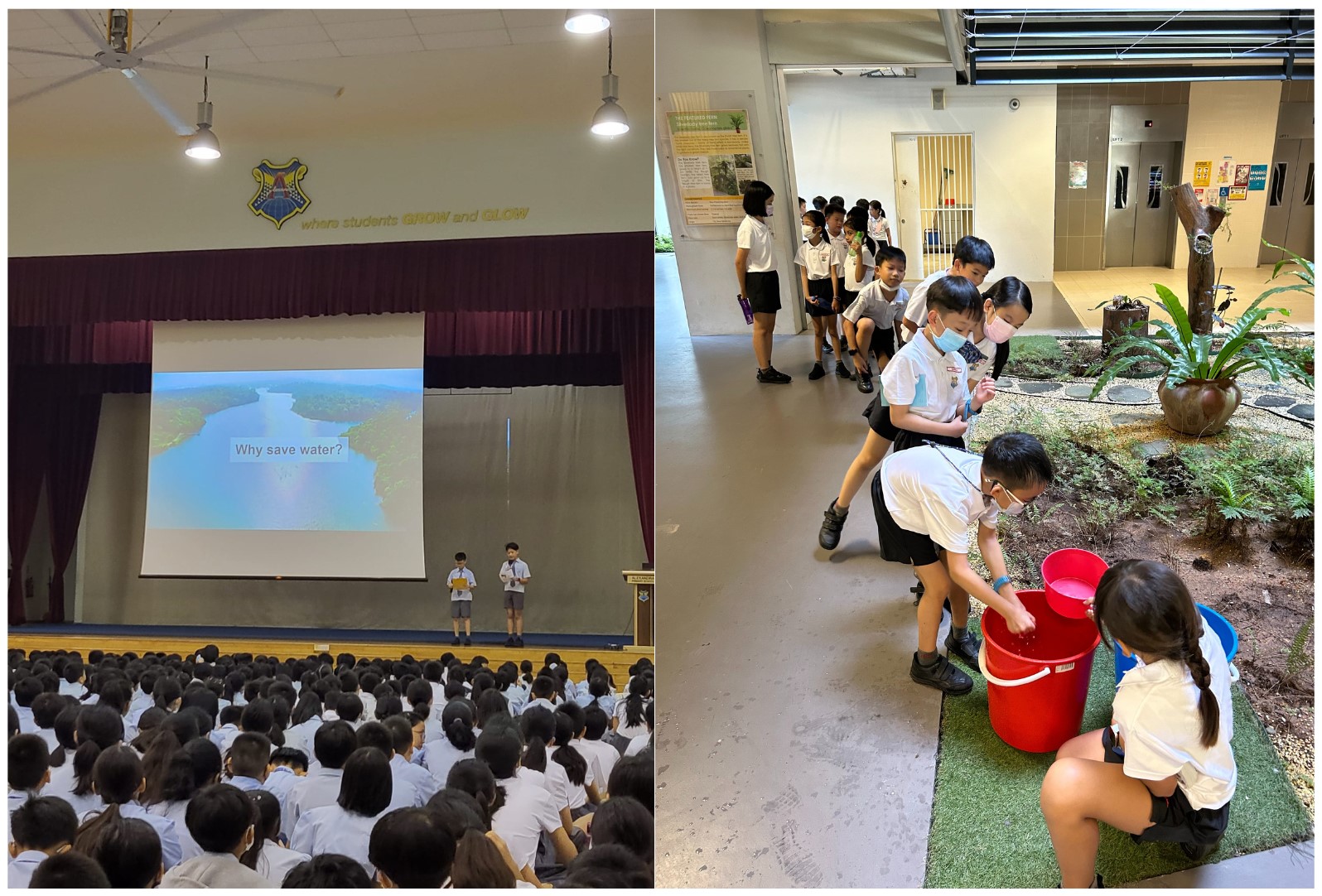
Earth Day Recess Activities
Earth Day is not as well-known as its cousin ‘Earth Hour’. It is a thematic annual event that demonstrates and promotes environmental awareness and calls for the protection of the earth. The activities for this meaningful event is planned based on the theme for the year. In 2023, the theme is 'Invest in Our Planet’. Through collaboration with the Parent Support Group, recess activities are planned so that students can learn more about sustainable living habits such as recycling, upcycling and growing edibles.
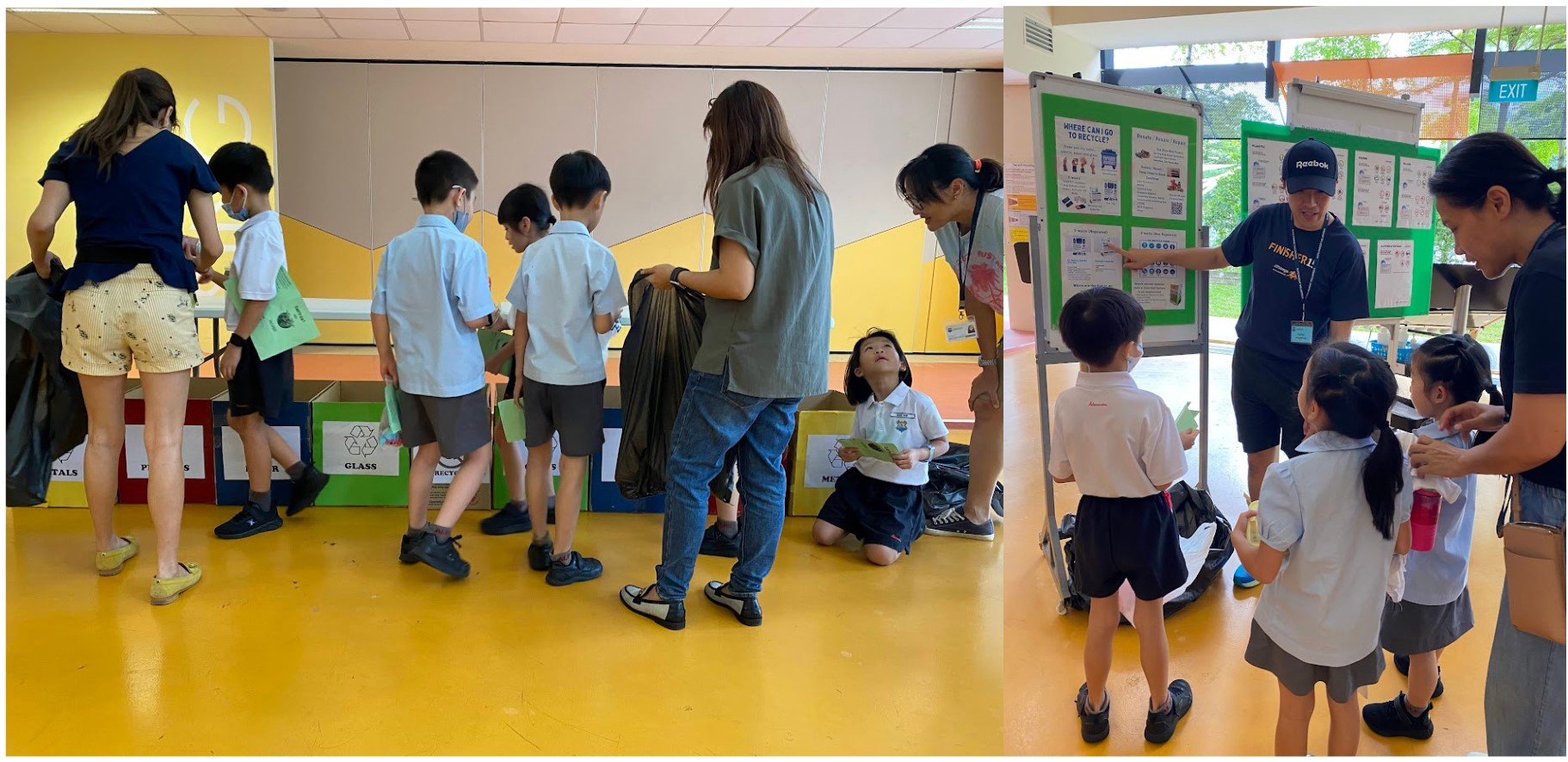
B-3 Everyday Responsibilities
Clean Plate Routine
An ALPS student is taught that reducing food waste is an important virtue. Each child is taught to be responsible enough to finish any food that they brought along or purchased during recess. They are asked to clean their food scrapes into a pail before returning their cutlery to the right places.
In 2016, ALPS participated in the Food for the Heart Clean Plate Campaign for the first time and came in fourth in a field of 35 participating schools. The result speaks well of the value embedded in our students.
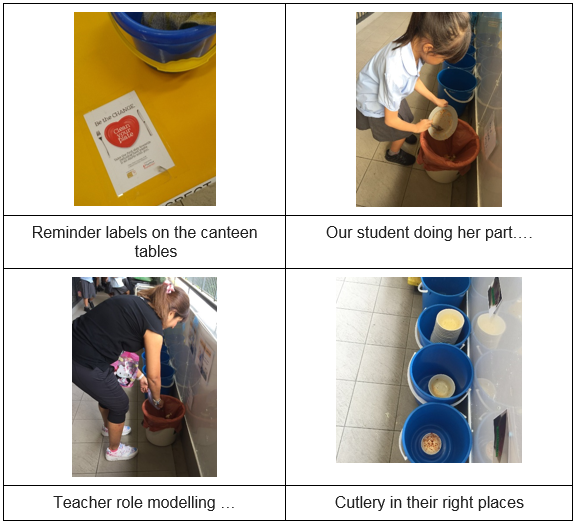
Recycling
Each class is encouraged to set up recycling bins in their classrooms at the start of the year so that students practise recycling right by cleaning the recyclables before recycling them.
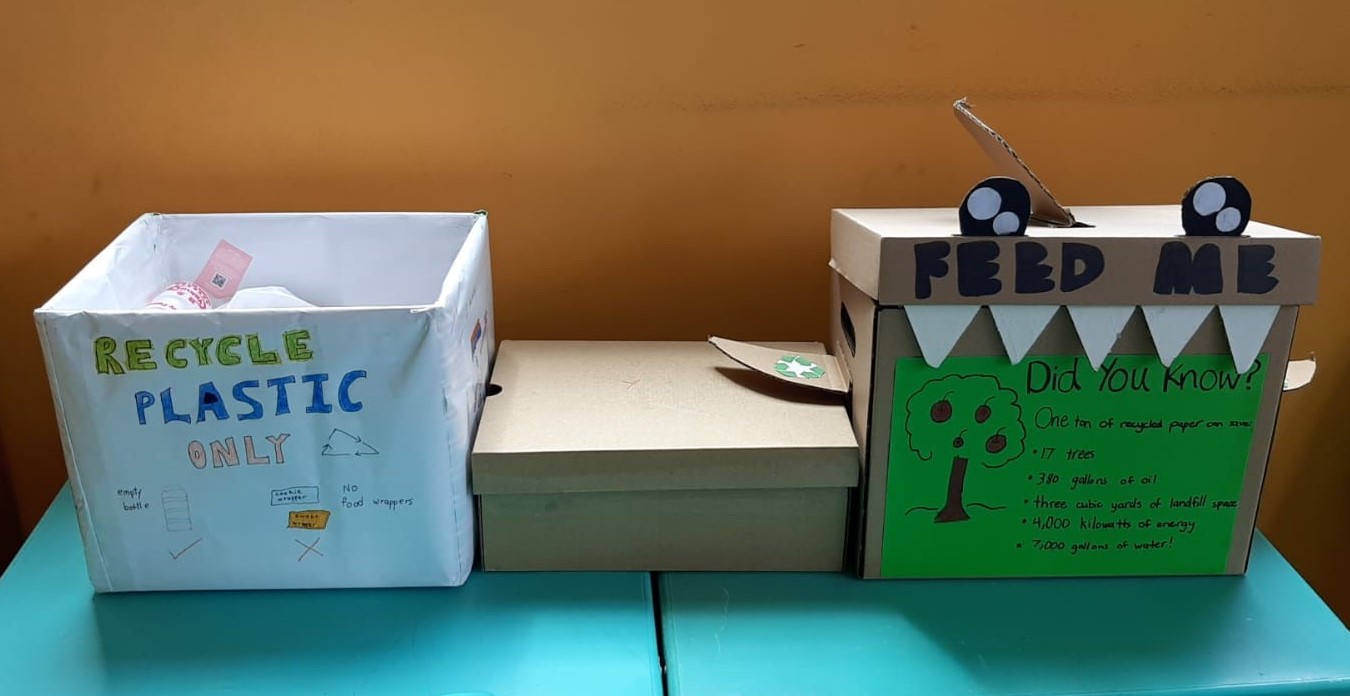
B-4 School Green Awards organised by Singapore Environmental Council
The School Green Awards is a yearly environmental programme which serves as a platform for schools and students to develop and showcase their environmental efforts. Due to our continued efforts in promoting sustainable living habits amongst staff, students and the community, our school has been awarded the Yellow Flame Award for 3 consecutive years since 2020.
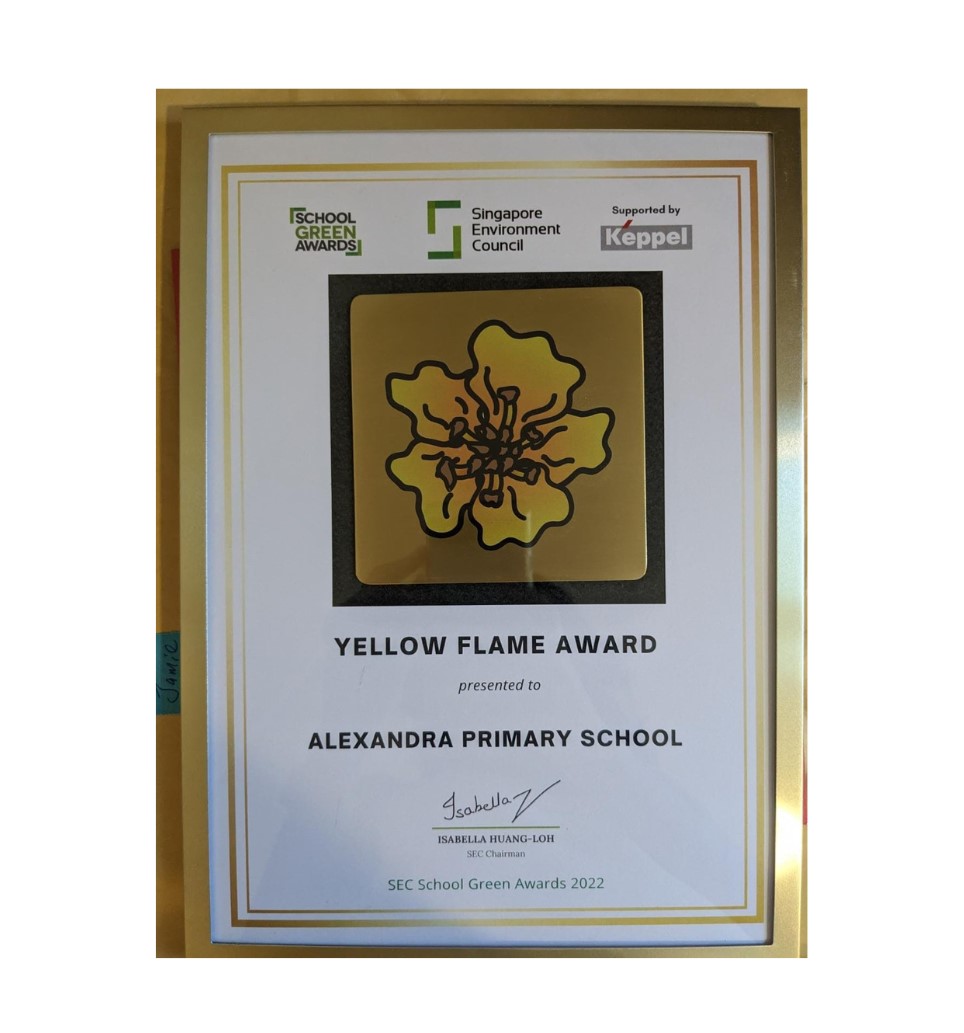
(C) Design Thinking in Science
C-1 Use of Models in Teaching and Learning
As part of the effort to promote sustainability and to practice design thinking, building of models is used as a methodology in teaching and learning. Students consolidate their understanding of the parts and functions of the human digestive system (P4) and plant transport system (P5) by building models with recycled materials.
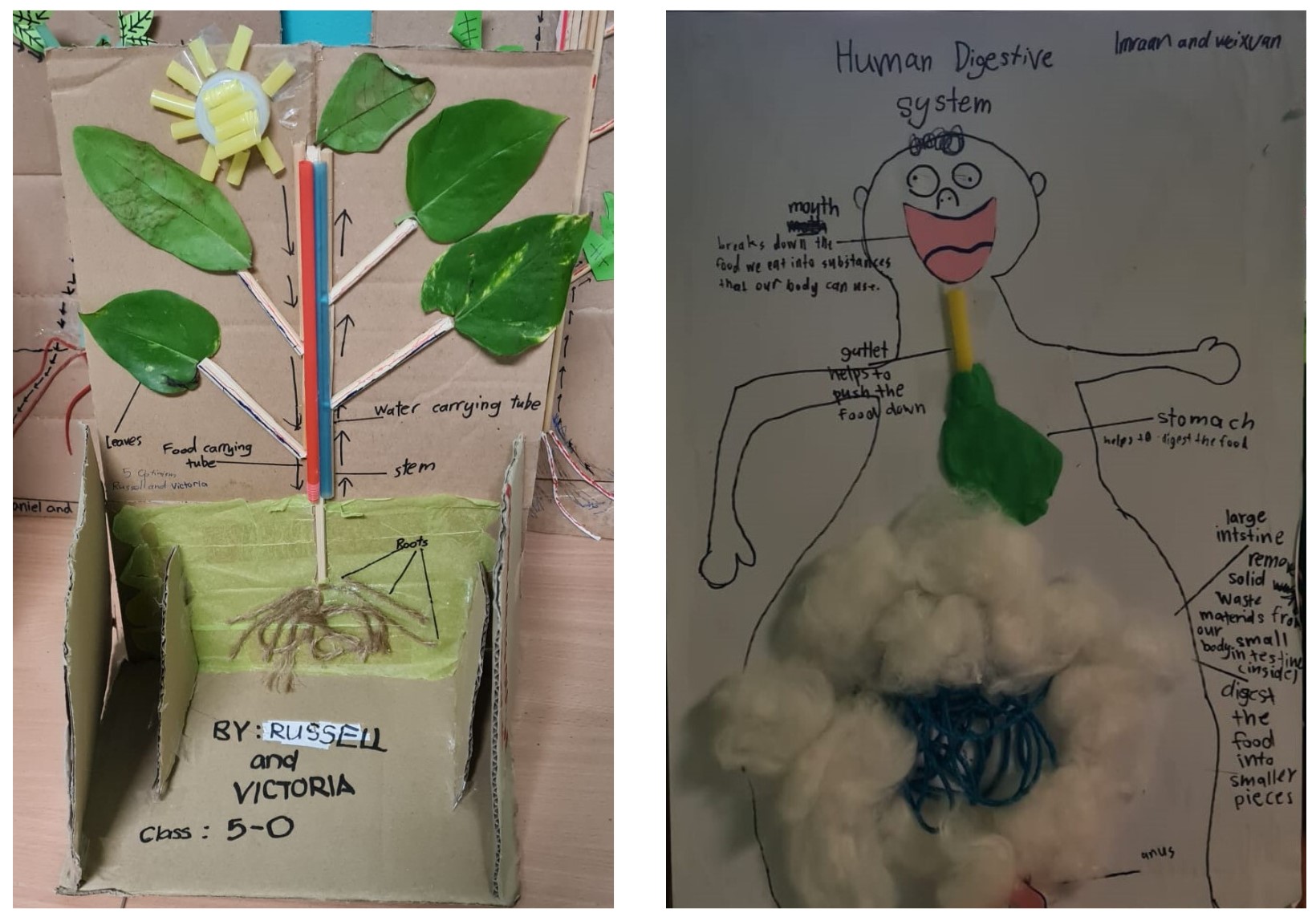
(D) Applied Learning Programme
D-1 Applied Learning in Science aims to:
-
enable students to build and apply a repertoire of knowledge, understanding and skills in order to design and make prototypes to explain scientific concepts
-
critique, evaluate and test their ideas and the work of others
-
develop inventive and creative thinking through Design and Technology
-
develop problem-solving skills through the design-and-prototype process
Programme:
P3 – Boat Design
P4 – Thermal Insulation
P5 – Electrical Circuits
D-2 Applied Learning in Technology
The technology component in the Alexandra Primary School’s Applied Learning Programme (ALP) would be a collaboration between the Innovation Committee and the ALP Committee. In this everchanging, and rapidly evolving technological shift into innovation and design, it is vital that all students in ALPS to be equipped with the necessary skills and dispositions that would allow them to take that fundamental and major leap into digital literacy. Encompassing that learning of technology is the acquisition of skills (e.g. Problem Solving, Collaboration, Creative Thinking, Critical Thinking, Knowledge Application – from various academic subjects) and adopting the Design Thinking Framework in innovating and designing useful products/processes that will benefit and improve lives in this world.
The aims of programme:
1. Equip students with problem solving skills
with the use of the Design Thinking Framework
2. Equip students with Project Work Learning Outcomes:
Knowledge Application, Collaboration, Communication and Independent Learning
3. Provide technological know-hows and experiences
to enhance students’ digital literacy
4. Develop and mentor students in using technology
to design useful products/processes with the adoption of the DT Framework
Progamme :
P3 Coding and Robotics using LEGO WeDo Mindstorm Kits to design a vehicle
P4 Coding and Robotics using Microbit to design a Smart Home with sensor
controls.
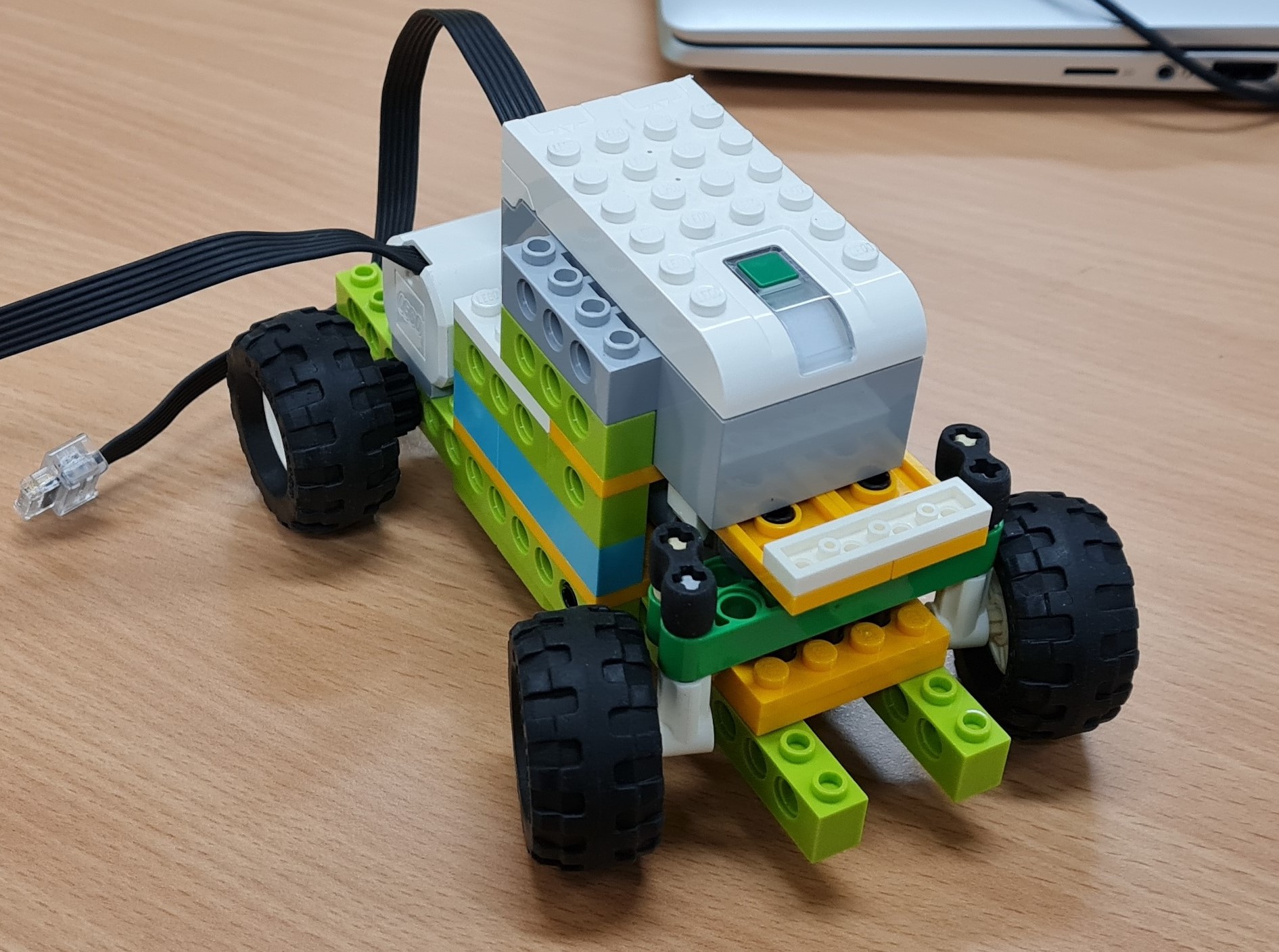
LEGO WeDO

